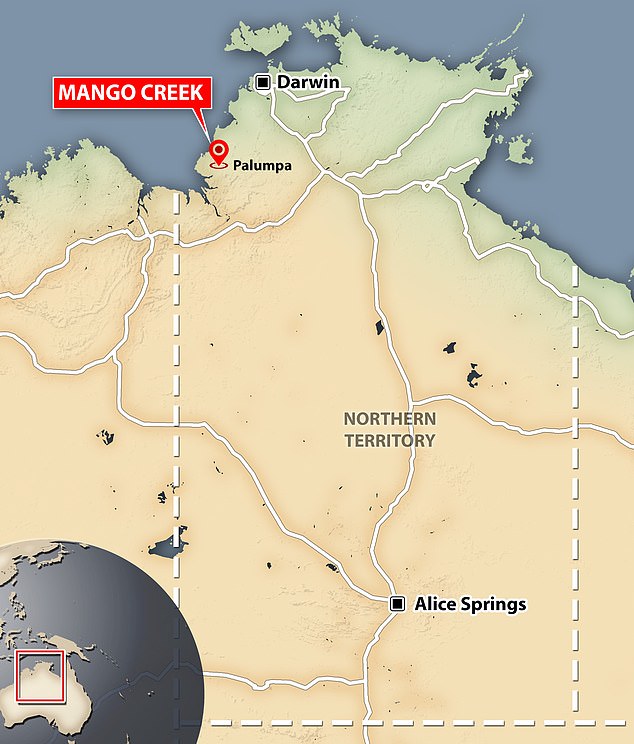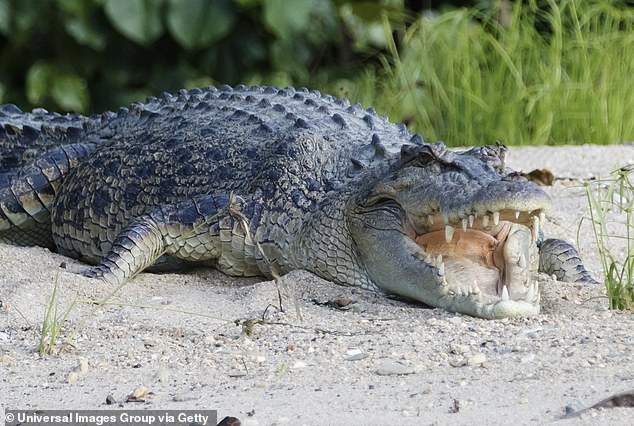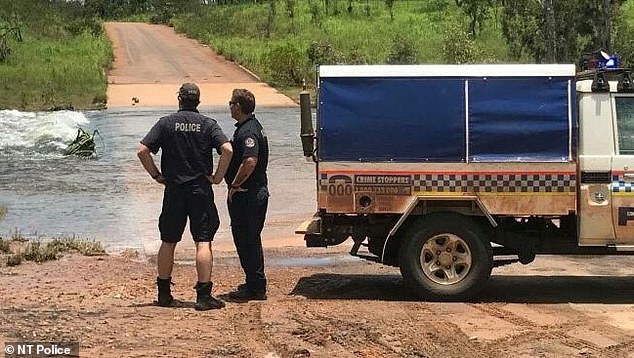A relative of a girl believed to have been killed by a crocodile in the Northern Territory has spoken out.
The girl was last seen swimming with family members in Mango Creek near the remote Aboriginal community of Nganmarriyanga, also known as Palumpa, 350 kilometres southwest of Darwin on Tuesday, before her partial remains were found on Thursday.
“It’s been an extremely difficult 36 hours… For the family, it’s the most devastating outcome that could happen to them. They’re in a state of extreme shock and disbelief,” said Northern Territory Police Senior Sergeant Erica Gibson.
Senior Sergeant Gibson told ABC Radio Darwin on Thursday morning that the girl was with her family when the incident occurred.
“The child disappeared and other relatives were notified, who were able to notify and contact the police,” he said.
“It’s just a really tragic event, not only for the family, but for all the police officers who were on the front line there to help them.”
A family member who was not present when the incident occurred has since shared a post on social media expressing his sadness.
“My deepest condolences to all my family… in Palumpa’s words, we cannot express the loss and pain we feel,” Jade Walker said.
Northern Territory Police officers near the area where the girl went missing. Her remains were found after a 36-hour search by land, air and water.
‘What a tragic event. May the Lord bless you all in this sad time. God has gained another beautiful angel.
‘Thinking of you, my older brother, my sister-in-law, my mom and the rest of the families… we wish we were back home with all the families on my mom’s side.’
Some people have since felt the cruel need to point out on social media that the girl should not have been allowed into the water, which is known to be the domain of crocodiles.
“NT crocodiles are everywhere, swim at your own risk,” one person said.
‘By saying that she is a child and her parents should have taught her water safety rules, secondly, the parents should not have allowed her to swim in waters with crocodiles.’
“Why swim where there are crocodiles?” added another.
“Haven’t you seen the many signs in these areas? You just have to get out of your vehicle and a neighbour will warn you. It’s very sad. Where were the parents? She was only 12 years old,” said a third.
“That’s the risk you run when you swim in these areas,” said another.
Efforts continue to find and catch the crocodile responsible.
Saltwater crocodiles are territorial and the killer is likely to remain in nearby waterways.

The girl was last seen swimming in Mango Creek in the remote community of Nganmarriyanga in the Northern Territory, 360km southwest of Darwin (map shown).

There are around 500,000 crocodiles in the Northern Territory, a huge increase in numbers in recent decades, although attacks have not increased.
The crocodile population has grown exponentially in Australia’s tropical north since they became a protected species under Australian legislation in the 1970s.
Saltwater crocodiles can live up to 70 years and grow throughout their lives, reaching up to six metres in length, while the proportion of larger crocodiles is also increasing.
Crocodiles are considered a risk in most Northern Territory waterways.
(tags to translate)dailymail

